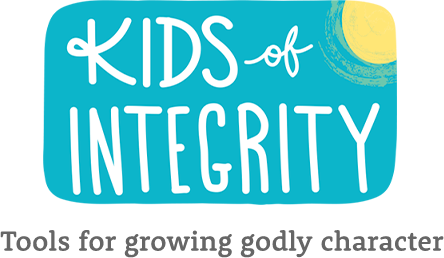Contentedness

Bible stories
This section provides Bible stories with the theme of contentedness, along with questions that can be used as a guide for family discussions. Choose one that is most appropriate for your children. Before reading aloud, take a few minutes to review the story. If the Bible passage is too complex for your children, paraphrase the story yourself or use the summary provided under “key concepts.”
Who or what owns your heart?
Read Ecclesiastes 5:10-20.
While reading this Scripture to your children, you can replace the words money, wealth, goods, etc. with something your children love. For example, replace these words with the word ice cream, jelly beans or toys. Emphasize verses 18-20.
Questions for discussion
- Have you ever loved something so much that you wanted more and more?
- What was it?
- Is there something right now that you want more and more of?
- How would it make you feel if you could not have it?
- Would you rather have gladness of heart or frustration?
- How was the man frustrated by having so much wealth?
- Imagine that you had a yard full of ________. There was so much ________ that there was no way you could eat it all/play with them all. Imagine all the neighbourhood kids coming by and eating your ice cream/playing with the toys and there is no way you can stop them. What would you need to do in this situation in order to be relaxed instead of frustrated? If you went out and screamed at them all to get away from your stuff, how would they feel and what would happen? If you said, “Welcome to my ________ party,” and shared the ________, what would happen?
- How would the others feel?
- How can we be glad in heart with what we have?
Key concepts
Solomon was a very rich man. In accumulating all his riches, he learned some important lessons. He learned that the more money people had, the more they wanted. He found that rich people became frustrated because they didn’t get a lot of sleep – maybe they had to work hard to care for their things, or maybe they couldn‘t sleep for fear someone would take their things. Solomon also pointed out that you can‘t take any wealth with you after you die.
Solomon was also wise. He decided that instead of worrying about being rich, he would try to enjoy life and allow God to give him gladness of heart. We can be glad in our hearts by being thankful for what we have instead of seeking more and more. We can also be happy in our hearts if we share what we have instead of keeping it just for ourselves.
Gifts from God
Read 1 Timothy 6:6-10, 17-19, Psalm 49:16-20 and Ecclesiastes 5:15.
Questions for discussion
- What are things we need to live?
- What does a baby bring into the world?
- What does a person take out of this world when they die?
- Are you content to give away something you love?
- Just because you love something, does it mean you need it?
- What do you gain when you are happy with what you have?
Key concepts
The basic things we need in order to live include love, food, shelter and clothing. God says that if we have food and clothing, we should be content. Anything beyond that is a gift from God and we should be thankful! When we are happy with God’s gifts, we have peaceful and contented hearts.
Cravings in the desert
Since this is a long story, use the summary in the “key concepts” section to help you paraphrase and shorten it for younger children, or use a children’s Bible. Add humour where you can. For example, the people said, “Hey Moses, this is too much meat – it‘s coming out our noses!”
Questions for discussion
- How would you feel when you want something and can’t have it?
- Have you ever been tired of eating a certain food? If so, what was it?
- If you were in the desert for holidays and all Mom and Dad were feeding you every day was pancakes, what would you say?
- Once you were tired of eating pancakes, what would you wish you could eat instead?
- Read Numbers 11:4-35 or Psalm 78:18-31. What did the Israelites crave?
- Why was God angry with the Israelites?
- Which food did God send for the Israelites to eat?
- What kind of meat did God send?
- How did God punish the people for not being content with the manna?
- What did the Israelites name the place where the people died of the plague?
Key concepts
To envy means that you want what someone else has. Craving means to long for or desire something. God provided manna for the Israelites when they were in the desert, but they got tired of eating the same food all the time and began to crave the foods they had eaten when they were slaves in Egypt. They wanted fish, meat, cucumbers, melons, leeks, onions and garlic.
They moaned and groaned and complained. God became angry with the Israelites because he had provided them with manna for food, and they were not thankful. God told Moses to tell the people that He would give them meat – not just a little meat, but enough meat that it would come out of their noses. They would be given meat to eat for a whole month. So, God brought quail from the ocean. The quail was piled up on the ground as thick as a kitchen table is off the floor (three feet).
Then, God was angry with the Israelites for craving food other than the manna, which he had provided. He punished them by sending a plague, which killed many of them. They called the place where they buried the people who died because they had craved other food, Kibroth Hattaavah, which means “graves of craving.”
Mine, mine, mine!
Questions for discussion
- What are some of the first words a baby learns to say?
- Are we born wanting to share with others or is it something we have to learn to do?
- What is one thing that you have difficulty sharing with others?
- Read Proverbs 21:25-26, Proverbs 11:24 and 1 John 3:17-18. What does God say we should do – crave what another has or give to others?
- Which of these attitudes do you think please God?
- What does the Bible say will happen to the one who doesn’t share?
- What does the Bible say will happen to the one gives to the needy?
Key concepts
Some of the first things most babies say are the words, “no” and “mine.” We are not born with a natural desire to share. The Bible says that those who give things to others freely will get even more, while the ones who refuse to share will become poor. God is pleased when people show love through sharing what they have and He promises to reward their generosity.
Peace and contentment 101
Questions for discussion
- What is the cause for most of your fights with your brother, sister or friends?
- Why do you think this is?
- Do you know what it means to covet?
- Read James 4:1-3. Why does James say these people were fighting and quarrelling?
- Why did God choose not to answer their prayers?
- Read James 3:16-18. Who tempts us to be selfish?
- What does it mean to be peace-loving?
- What would someone who loves peace do if another wanted something they had?
- What does considerate mean?
- What does submissive mean?
- Is it still possible to get into a fight if we are thinking of the other person‘s feelings and letting them have what they want?
- Who can help you have an unselfish attitude?
Key concepts
James says the reason we fight and quarrel is because we desire to have the things others have.
This passage also talks about “gimme-gimme” prayers. “Gimme-gimme” prayers are selfish prayers. It is not good to pray, treating God like He is a vending machine who will give out things just to make us happy. When we ask God for things, we need ask with the right reasons. If our only motivation for asking God for something is for our own pleasure, we need to rethink our prayer to make sure it is not a “gimme-gimme” prayer.
Satan tempts us to be selfish, but when we accept God‘s wisdom, choose to be considerate of others and let others have their way, we keep the peace.
Mountainside snack attack
Read Matthew 15:29-39.
Questions for discussion
- How hungry do you think you would be if you had not eaten for three days?
- Why do you think the people in this story did not go home after one day if they were hungry?
- What kind of miracles was Jesus doing?
- What kind of food is in the mountains?
- How much food did they have?
- How many people were fed?
- How much food was there left over?
Key concepts
We can imagine that the people were very hungry, as they had not eaten for three days. They were so amazed at the miracles Jesus was doing – the lame walked, the mute talked and the blind could see after Jesus healed them – that they were not concerned about food.
Jesus was concerned for the people and wanted to feed them before He sent them back to their homes. The disciples could only find seven loves and a few small fish, but Jesus did another miracle and provided food for 4,000 people. After all of the people ate, there were still seven basketfuls of food left over. Jesus cares about the spiritual part of us and the needs of our physical bodies.
- Acceptance
- Adaptability
- Attentiveness
- Christmas
- Compassion
- Confidence
- Consideration
- Contentedness
- Cooperation
- Courage
- Courtesy
- Discernment
- Easter
- Faithfulness
- Forgiveness
- Generosity
- Gentleness
- Gratitude
- Harmony
- Honesty
- Humility
- Joy
- Kindness
- Obedience
- Patience
- Perseverance
- Respect
- Responsibility
- Reverence
- Righteousness
- Self-control
- Thanksgiving

